- Clone
- M17/4 (See other available formats)
- Regulatory Status
- RUO
- Other Names
- αL integrin, LFA-1 α subunit, Ly-15, Ly-21, ITGAL
- Isotype
- Rat IgG2a, κ
- Ave. Rating
- Submit a Review
- Product Citations
- publications
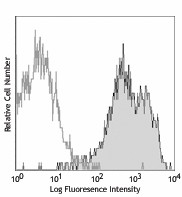
-

C57BL/6 mouse splenocytes stained with biotinylated M17/4, followed by Sav-PE
| Cat # | Size | Price | Quantity Check Availability | Save | ||
|---|---|---|---|---|---|---|
| 101103 | 50 µg | 52€ | ||||
CD11a is a 180 kD glycoprotein, also known as αL integrin, LFA-1 α, Ly-15, or Ly-21. It is a member of the integrin family, primarily expressed on lymphocytes, monocytes/macrophages, and granulocytes. In association with CD18, the CD11a/CD18 complex forms LFA-1. CD11a plays an important role in intercellular adhesion and costimulation by binding its ligands, ICAM-1 (CD54), ICAM-2 (CD102), and ICAM-3 (CD50).
Product DetailsProduct Details
- Verified Reactivity
- Mouse
- Antibody Type
- Monoclonal
- Host Species
- Rat
- Immunogen
- C57BL/6 mouse splenic secondary cytotoxic T cells
- Formulation
- Phosphate-buffered solution, pH 7.2, containing 0.09% sodium azide.
- Preparation
- The antibody was purified by affinity chromatography, and conjugated with biotin under optimal conditions.
- Concentration
- 0.5 mg/ml
- Storage & Handling
- The antibody solution should be stored undiluted between 2°C and 8°C. Do not freeze.
- Application
-
FC - Quality tested
- Recommended Usage
-
Each lot of this antibody is quality control tested by immunofluorescent staining with flow cytometric analysis. For flow cytometric staining, the suggested use of this reagent is ≤ 0.25 µg per 106 cells in 100 µl volume. It is recommended that the reagent be titrated for optimal performance for each application.
- Application Notes
-
The M17/4 antibody can block CD11a-mediated cellular adhesion. Additional reported applications of this antibody (for the relevant formats) include: immunoprecipitation1,2, in vitro blocking of cell-cell adhesion1,2 and FOXP3 expression5, and immunohistochemical staining of acetone-fixed frozen sections3. The M17/4 antibody does not block the binding of 2D7 antibody (Cat. No. 101002) to CD11a. The LEAF™ purified antibody (Endotoxin <0.1 EU/µg, Azide-Free, 0.2 µm filtered) is recommended for functional assays (Cat. No. 101110). For in vivo studies or highly sensitive assays, we recommend Ultra-LEAF™ purified antibody (Cat. No. 101118) with a lower endotoxin limit than standard LEAF™ purified antibodies (Endotoxin <0.01 EU/µg).
- Application References
-
- Sanchez-Madrid F, et al. 1982. Cell Immunol. 73:1. (IP, Block)
- Kuhlman P, et al. 1991. J. Immunol. 146:1773. (IP, Block)
- Mizgerd JP, et al. 1997. J. Exp. Med. 186:1357. (IHC)
- Hailman E and Allen PM. 2005. J. Immunol. 175:4847. (FC)
- Verhagen J and Wraith DC. 2014. J. Immunol. Methods. S0022. (Block) PubMed
- Product Citations
-
- RRID
-
AB_312776 (BioLegend Cat. No. 101103)
Antigen Details
- Structure
- Integrin family, associates with integrin β2 (CD18), 180 kD
- Distribution
-
Lymphocytes, granulocytes, monocytes, macrophages
- Function
- Cellular adhesion
- Ligand/Receptor
- ICAM-1 (CD54), ICAM-2 (CD102), ICAM-3 (CD50)
- Cell Type
- Granulocytes, Lymphocytes, Macrophages, Monocytes, Tregs
- Biology Area
- Cell Adhesion, Cell Biology, Costimulatory Molecules, Immunology, Innate Immunity, Neuroinflammation, Neuroscience
- Molecular Family
- Adhesion Molecules, CD Molecules
- Antigen References
-
1. Barclay A, et al. 1997. The Leukocyte Antigen FactsBook Academic Press.
2. Springer TA. 1994. Cell 76:301.
3. Lub M, et al. 1995. Immunol. Today 16:479. - Gene ID
- 16408 View all products for this Gene ID
- UniProt
- View information about CD11a on UniProt.org
Related FAQs
- How many biotin molecules are per antibody structure?
- We don't routinely measure the number of biotins with our antibody products but the number of biotin molecules range from 3-6 molecules per antibody.
Other Formats
View All CD11a Reagents Request Custom Conjugation| Description | Clone | Applications |
|---|---|---|
| Biotin anti-mouse CD11a | M17/4 | FC |
| FITC anti-mouse CD11a | M17/4 | FC |
| LEAF™ Purified anti-mouse CD11a | M17/4 | FC, IHC-F, IP |
| PE anti-mouse CD11a | M17/4 | FC |
| Purified anti-mouse CD11a | M17/4 | FC,IHC-F,IP |
| Alexa Fluor® 488 anti-mouse CD11a | M17/4 | FC |
| Alexa Fluor® 647 anti-mouse CD11a | M17/4 | FC |
| APC anti-mouse CD11a | M17/4 | FC |
| Ultra-LEAF™ Purified anti-mouse CD11a | M17/4 | FC |
| PE/Cyanine7 anti-mouse CD11a | M17/4 | FC |
| PerCP/Cyanine5.5 anti-mouse CD11a | M17/4 | FC |
| TotalSeq™-A0595 anti-mouse CD11a | M17/4 | PG |
| TotalSeq™-C0595 anti-mouse CD11a | M17/4 | PG |
| TotalSeq™-B0595 anti-mouse CD11a | M17/4 | PG |
| Spark Red™ 718 anti-mouse CD11a (Flexi-Fluor™) | M17/4 | FC |
Customers Also Purchased
Compare Data Across All Formats
This data display is provided for general comparisons between formats.
Your actual data may vary due to variations in samples, target cells, instruments and their settings, staining conditions, and other factors.
If you need assistance with selecting the best format contact our expert technical support team.
-
Biotin anti-mouse CD11a
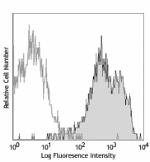
C57BL/6 mouse splenocytes stained with biotinylated M17/4, f... -
FITC anti-mouse CD11a
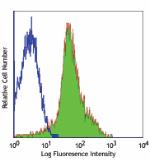
C57BL/6 mouse splenocytes stained with M17/4 FITC -
LEAF™ Purified anti-mouse CD11a
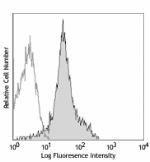
C57BL/6 mouse splenocytes stained with LEAF™ purified M17/4,... -
PE anti-mouse CD11a
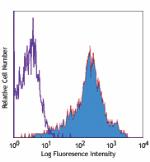
C57BL/6 mouse splenocytes stained with M17/4 PE -
Purified anti-mouse CD11a
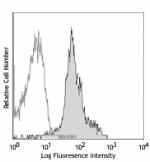
C57BL/6 mouse splenocytes stained with purified M17/4, follo... -
Alexa Fluor® 488 anti-mouse CD11a
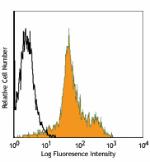
BALB/c mouse splenocytes stained with M17/4 Alexa Fluor® 488 -
Alexa Fluor® 647 anti-mouse CD11a
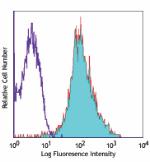
C57BL/6 mouse splenocytes stained with M17/4 Alexa Fluor® 64... -
APC anti-mouse CD11a
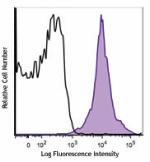
C57BL/6 mouse splenocytes were stained with CD11a (clone M17... -
Ultra-LEAF™ Purified anti-mouse CD11a

C57BL/6 mouse splenocytes stained with Ultra-LEAF™ purified ... -
PE/Cyanine7 anti-mouse CD11a
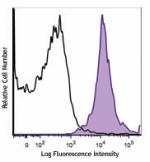
C57BL/6 mouse splenocytes were stained with CD11a (clone M17... -
PerCP/Cyanine5.5 anti-mouse CD11a
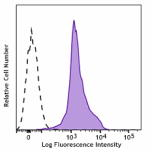
C57BL/6 mouse splenocytes were stained with CD11a (clone M17... -
TotalSeq™-A0595 anti-mouse CD11a
-
TotalSeq™-C0595 anti-mouse CD11a
-
TotalSeq™-B0595 anti-mouse CD11a
-
Spark Red™ 718 anti-mouse CD11a (Flexi-Fluor™)
 Login / Register
Login / Register 








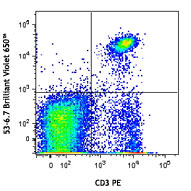
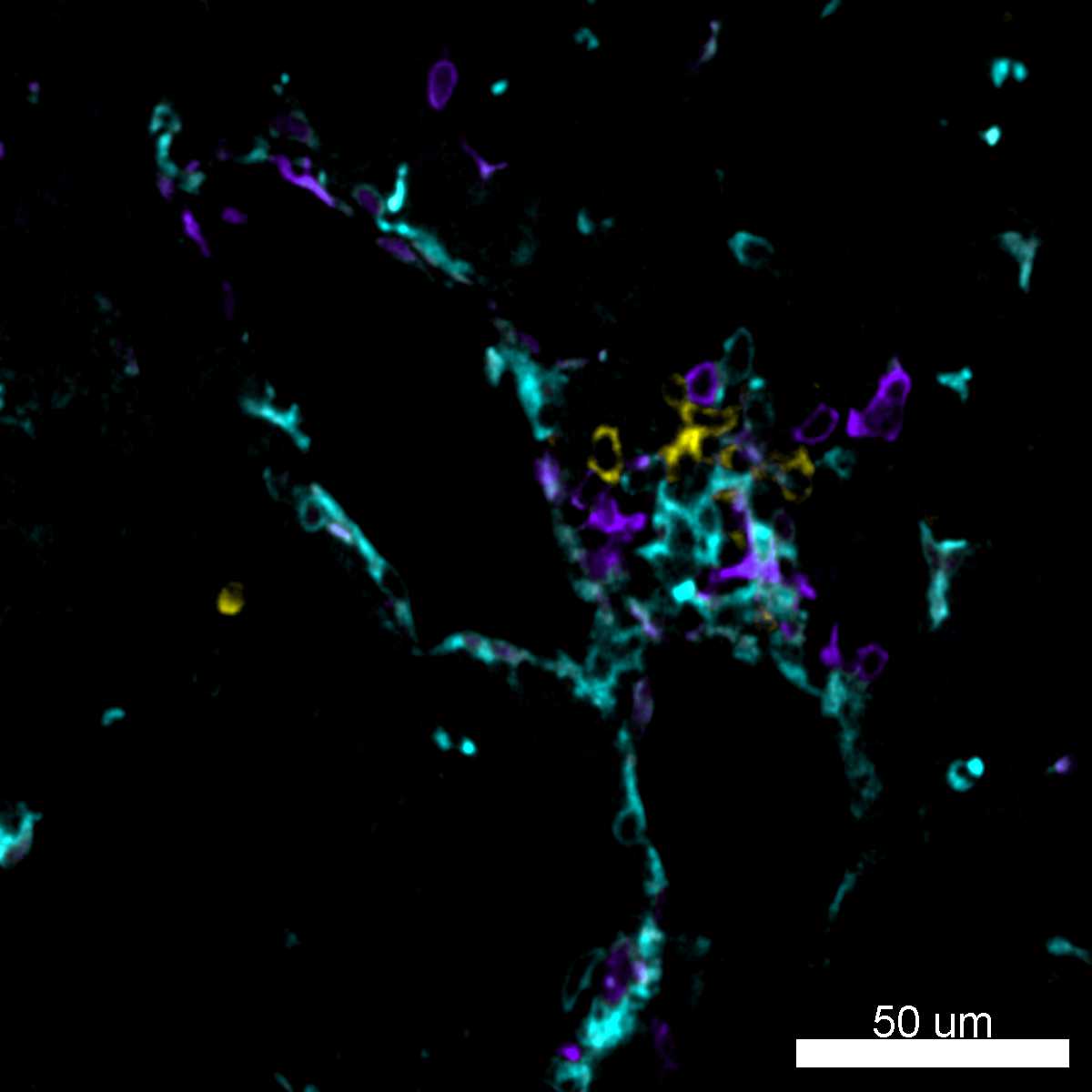
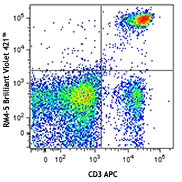
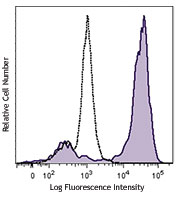



Follow Us